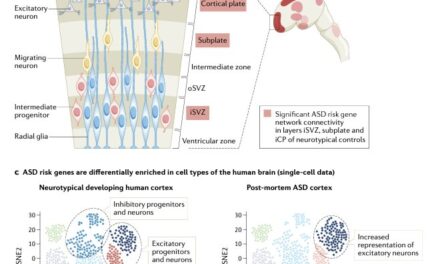A new study from SWPS University researchers in Poland is overturning common stereotypes about older adults and their ability to make decisions, particularly in risky or uncertain situations. The research, published in Ageing and Society, shows that older adults are not as risk-averse or susceptible to manipulation as often believed. In fact, they are more inclined to take risks than younger people and demonstrate a strong ability to resist manipulative decision-making tactics.
With Poland’s population aging—people aged 65 and older now make up more than 20% of the population, according to Statistics Poland—understanding how older adults make financial and health-related decisions has become increasingly important. Previous studies on the decision-making abilities of older adults have been mixed, with some suggesting that older people are more cautious and vulnerable to manipulation, while others argue the opposite. The SWPS University study adds a new perspective to this debate.
The research challenges the stereotype that older adults are less capable of making informed decisions. “Too often, older people are portrayed as defenseless and less capable of making correct decisions, which can lead to their infantilization or exclusion from important choices,” said Dr. Maciej Kościelniak, one of the authors of the study. He emphasized that older adults should not be underestimated or overprotected in decision-making scenarios.
The study focused on the attraction effect, also known as the decoy effect—a cognitive bias in which people are influenced by irrelevant information when making decisions. Researchers wanted to explore how this effect impacted older adults compared to younger and middle-aged participants. The study involved 357 online participants and 173 in a laboratory setting, with participants divided into three age groups: young adults (18–33), middle-aged adults (42–57), and older adults (65–80).
Surprisingly, the results showed that older adults were more prone to risk-taking than younger individuals. However, both age groups demonstrated an equal ability to resist manipulation from the attraction effect. This finding challenges the belief that older adults are more easily influenced or less capable of making decisions in risky situations.
Though older participants made more mistakes initially, they were able to learn and adjust their decision-making strategies over time. By the end of the study, their performance matched that of younger adults, suggesting that while aging may slow down information processing, it does not diminish the ability to make sound decisions.
Dr. Kościelniak explained, “The discovery that learning ability is comparable between older and younger adults has profoundly influenced my view on cognitive functions in the aging process—it’s not simply a story of decline, but rather one of adaptation.”
These findings have important implications for how society views older adults in decision-making contexts, especially when interacting with professionals like financial advisors or healthcare workers. According to the study, older adults do not necessarily need to be protected from making decisions. Instead, they need the time and opportunity to become familiar with new situations, allowing them to make informed choices on their own.
The research points to a more nuanced understanding of aging and decision-making, urging society to reconsider its assumptions about the cognitive abilities of older adults.
For more information, refer to the paper: Maciej Kościelniak et al, Effect of Age on Susceptibility to the Attraction Effect in Sequential Risky Decision-Making, Ageing and Society (2024). DOI: 10.1017/S0144686X24000527.












